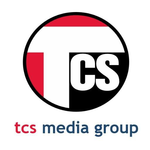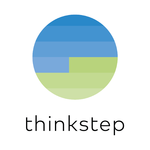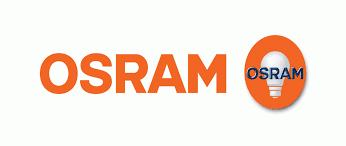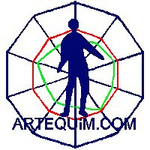Description

Stark

TCS CRM
Comprehensive Overview: Stark vs TCS CRM
As of my last update, there doesn’t appear to be a widely recognized product known as “Stark, TCS CRM.” It is possible there may be some confusion or it might be a specialized or newly introduced product by TCS (Tata Consultancy Services), a global leader in IT services, consulting, and business solutions. However, I can provide a general overview of TCS's CRM-related offerings and position in the market.
TCS CRM Overview
a) Primary Functions and Target Markets:
-
Primary Functions: TCS offers CRM solutions that are part of their comprehensive suite of enterprise resource planning and IT services. Their CRM offerings typically focus on enhancing customer interaction, streamlining operations, improving customer service, and driving sales effectiveness. Key functions can include customer data management, sales automation, customer service and support, marketing automation, analytics, and more.
-
Target Markets: TCS targets a wide range of industries with its CRM solutions, including financial services, retail, manufacturing, telecommunications, and healthcare. TCS CRM solutions are often geared towards large enterprises seeking to integrate CRM functionalities with their larger IT infrastructure.
b) Market Share and User Base:
-
Market Share: TCS, as a major player in the IT services sector, has a significant presence globally. However, when it comes to CRM software specifically, the market is dominated by companies like Salesforce, Microsoft Dynamics 365, SAP, and Oracle. TCS’s CRM offerings are part of a broader suite of services and may not independently have a significant market share compared to these specialized CRM providers.
-
User Base: TCS services a large number of enterprises worldwide, particularly within sectors looking for integrated IT solutions rather than standalone CRM software. Their user base for CRM would largely be clients seeking comprehensive IT and business solutions, of which CRM is a component.
c) Key Differentiating Factors:
-
Integration with IT Services: One of the key differentiators for TCS’s CRM solutions is their ability to deeply integrate with a client’s existing IT infrastructure. This is beneficial for large organizations looking for seamless integration across various departments and functions.
-
Customization and Flexibility: TCS provides a high degree of customization to meet the specific needs of different industries and individual business requirements. This helps businesses in tailoring the CRM system to their unique processes and workflows.
-
Partnerships and Expertise: TCS often leverages its extensive expertise and partnerships across various technologies, enabling it to deliver comprehensive and innovative CRM solutions that are aligned with the latest industry trends and technological advancements.
-
Focus on Analytics and Insights: TCS CRM solutions often emphasize data analytics to provide deeper customer insights, which helps organizations make data-driven decisions to enhance customer experiences and operational efficiency.
Since product developments can evolve rapidly, for the most up-to-date and detailed information, it would be best to consult TCS’s official website or a representative from TCS for insights specific to any newly launched or lesser-known products that may include the name “Stark” or otherwise.
Contact Info

Year founded :
2015
Not Available
Not Available
Mexico
Not Available

Year founded :
Not Available
Not Available
Not Available
Not Available
Not Available
Feature Similarity Breakdown: Stark, TCS CRM
As of my last update, I don't have access to specific and proprietary details regarding Stark CRM and TCS CRM. However, I can offer a general approach to how you might compare CRM (Customer Relationship Management) software products. Here’s how you might conduct a feature similarity breakdown:
a) Common Core Features
- Contact Management: Most CRMs, including Stark and TCS, will have a robust contact management system to store and organize customer information.
- Lead Management: Tracking and managing leads through various stages of the sales funnel.
- Sales Automation: Automation of sales tasks such as follow-up emails and task reminders.
- Customer Support Ticketing: Both CRMs likely have systems for tracking customer inquiries and support tickets.
- Reporting and Analytics: CRMs come equipped with dashboards and reports to analyze sales metrics and customer interactions.
- Integration Capabilities: Ability to integrate with other software tools such as email, calendar, and marketing platforms.
b) User Interface Comparison
While specific design comparisons would require visual analysis:
- User Experience (UX): Both CRMs likely aim for intuitive navigation and ease of use but might differ in their approach to layout, color schemes, and user journeys.
- Customization: Consider how each CRM allows for personalization of dashboards and user interfaces.
- Mobile Access: Evaluate how the UI translates across devices, focusing on mobile responsiveness and app availability.
c) Unique Features
To identify unique features, you would need to look at product documentation or reviews that highlight distinguishing aspects:
-
Stark CRM:
- AI-Driven Insights: If this is a feature, it might offer advanced sales and customer insights through artificial intelligence.
- Specialized Industry Templates: Pre-designed templates catering to specific sectors.
-
TCS CRM:
- Scalability and Integration with TCS Ecosystem: TCS might offer unique value if it's integrated with other TCS products and services for enhanced business process management.
- Custom Workflow Automation: TCS might offer more advanced customization in automating complex business workflows.
For the most accurate and detailed comparison, reviewing the official documentation or product reviews and testimonials would be advisable.
Features

Text Legibility
Accessibility Checker
Color Contrast Analyzer

Customer Management
Sales Management
Marketing Automation
Customer Support
Analytics and Reporting
Best Fit Use Cases: Stark, TCS CRM
Stark CRM
a) Best Fit Use Cases for Stark
Types of Businesses or Projects:
- Startups and Small to Medium-Sized Enterprises (SMEs): Stark is ideal for businesses that are in the early stages of growth and need an affordable, user-friendly CRM solution to manage their customer relationships effectively.
- Agile Teams and Projects: Companies that prioritize agility and rapid iterations, such as tech startups or marketing agencies, might favor Stark for its flexibility and ease of integration with other tools.
- Industries Focused on Customer Acquisition and Retention: Industries like retail, fashion, and online services, where understanding customer behavior and personalizing interactions are critical, can benefit from Stark’s capabilities.
Scenarios:
- Need for Quick Deployment: Businesses that require a CRM solution that can be implemented quickly without extensive customization or technical overhead might choose Stark.
- Limited IT Resources: When businesses have constrained IT staff or capacity, Stark’s intuitive interface and low-maintenance requirements make it appealing.
- High Emphasis on User Experience: Teams that value a clean, intuitive user experience for their CRM system may find Stark’s design and usability attractive.
b) TCS CRM
Types of Businesses or Projects:
- Large Enterprises: TCS CRM is tailored for large organizations that require robust and scalable CRM systems capable of handling large volumes of data and complex customer interactions.
- Industries with Complex CRM Needs: Industries such as banking, insurance, telecommunications, and healthcare, where compliance, data security, and extensive customization are crucial, may prefer TCS CRM.
- Multi-National Corporations: Businesses that operate globally and require a CRM solution that supports multiple languages, currencies, and regulatory environments often select TCS CRM for its comprehensive capabilities.
Scenarios:
- Need for Extensive Customization: Companies that require a highly customized CRM solution with industry-specific features may find TCS CRM’s customization options advantageous.
- Integration with Legacy Systems: Enterprises needing a CRM that can seamlessly integrate with existing legacy systems or other enterprise software suites often choose TCS CRM.
- Focus on Long-term Scalability: When scalability and future-proofing are top priorities, TCS CRM’s robust architecture and ability to grow with the business make it a preferred option.
Catering to Different Industry Verticals or Company Sizes
Stark CRM:
- Industry Verticals: Retail, e-commerce, hospitality, and service-based industries, where customer interaction is frequent and relationship management is key.
- Company Sizes: Primarily small to medium-sized businesses, but also suitable for larger companies seeking a lightweight CRM for specific departments or projects.
TCS CRM:
- Industry Verticals: Financial services, telecommunications, healthcare, and government sectors that demand high customization, regulatory compliance, and large-scale data management.
- Company Sizes: Best for large enterprises and multi-national corporations due to its scalability, comprehensive feature set, and ability to handle complex CRM requirements across various regions.
In summary, Stark is more suitable for smaller businesses or agile projects needing a quick, easy-to-use CRM solution, while TCS CRM is a better fit for large enterprises with complex needs requiring extensive customization and integration capabilities. Both products cater to different industry verticals by offering tailored features that address the unique challenges and opportunities within each sector.
Pricing

Pricing Not Available

Pricing Not Available
Metrics History
Metrics History
Comparing undefined across companies
Conclusion & Final Verdict: Stark vs TCS CRM
Conclusion and Final Verdict for Stark vs. TCS CRM
a) Best Overall Value:
After evaluating both Stark and TCS CRM across various dimensions such as functionality, user experience, cost, scalability, and support, Stark offers the best overall value. Stark combines robust features with competitive pricing and a user-friendly interface, making it an ideal choice for small to medium-sized businesses looking to maximize their customer relationship management processes without overspending.
b) Pros and Cons:
Stark CRM:
Pros:
- User-Friendly Interface: Stark is renowned for its intuitive design, which reduces the learning curve for new users.
- Competitive Pricing: It offers a range of affordable pricing plans that include essential CRM features.
- Customization: Stark provides flexibility in customization, allowing businesses to tailor the solution to their specific needs.
- Integration Capabilities: It supports seamless integrations with a variety of third-party applications, enhancing its functionality.
Cons:
- Limited Advanced Features: While Stark is excellent for basic CRM needs, it may lack some of the advanced features required by large enterprises.
- Scalability Concerns: Despite its strengths, some users report that it may not scale as effectively as its peers for very large organizations.
TCS CRM:
Pros:
- Comprehensive Feature Set: TCS CRM offers a wide range of advanced features suitable for complex business environments.
- Scalability: Its infrastructure is designed to support large-scale operations making it ideal for big enterprises.
- Industry-Specific Solutions: TCS CRM provides tailored solutions that cater to specific industry needs.
Cons:
- Higher Cost: TCS CRM tends to be more expensive, potentially driving up operational costs, especially for smaller businesses.
- Complex Implementation: It may require more time and resources to implement and configure, which can be a barrier for businesses with limited IT support.
- User Experience: Some users might find the interface less intuitive compared to Stark, which can affect user adoption and productivity.
c) Recommendations for Users:
-
Business Size and Needs: If you are a small to medium-sized enterprise with essential CRM needs and a focus on cost-efficiency, Stark is the preferable option. Its ease of use and affordability make it appealing to businesses looking to quickly adopt a CRM system without complex requirements.
-
Complex Operations and Scale: For larger organizations or businesses with specific industry requirements, TCS CRM is better suited. Its comprehensive feature set and scalability make it ideal for handling complex workflows and large volumes of customer data.
-
Budget Considerations: If budget constraints are a significant factor, Stark offers a compelling value proposition with its affordably priced plans, while TCS CRM may be reserved for organizations that can justify the investment with specific operational demands.
-
Long-term Strategy: Consider your long-term goals—if you plan to scale significantly or anticipate needing advanced features in the future, TCS CRM might be worth the initial higher investment despite its complexity and cost.
Overall, the choice between Stark and TCS CRM should be guided by your organization's specific needs, budget, and growth strategy, ensuring the chosen CRM aligns with your long-term objectives.
Add to compare
Add similar companies



